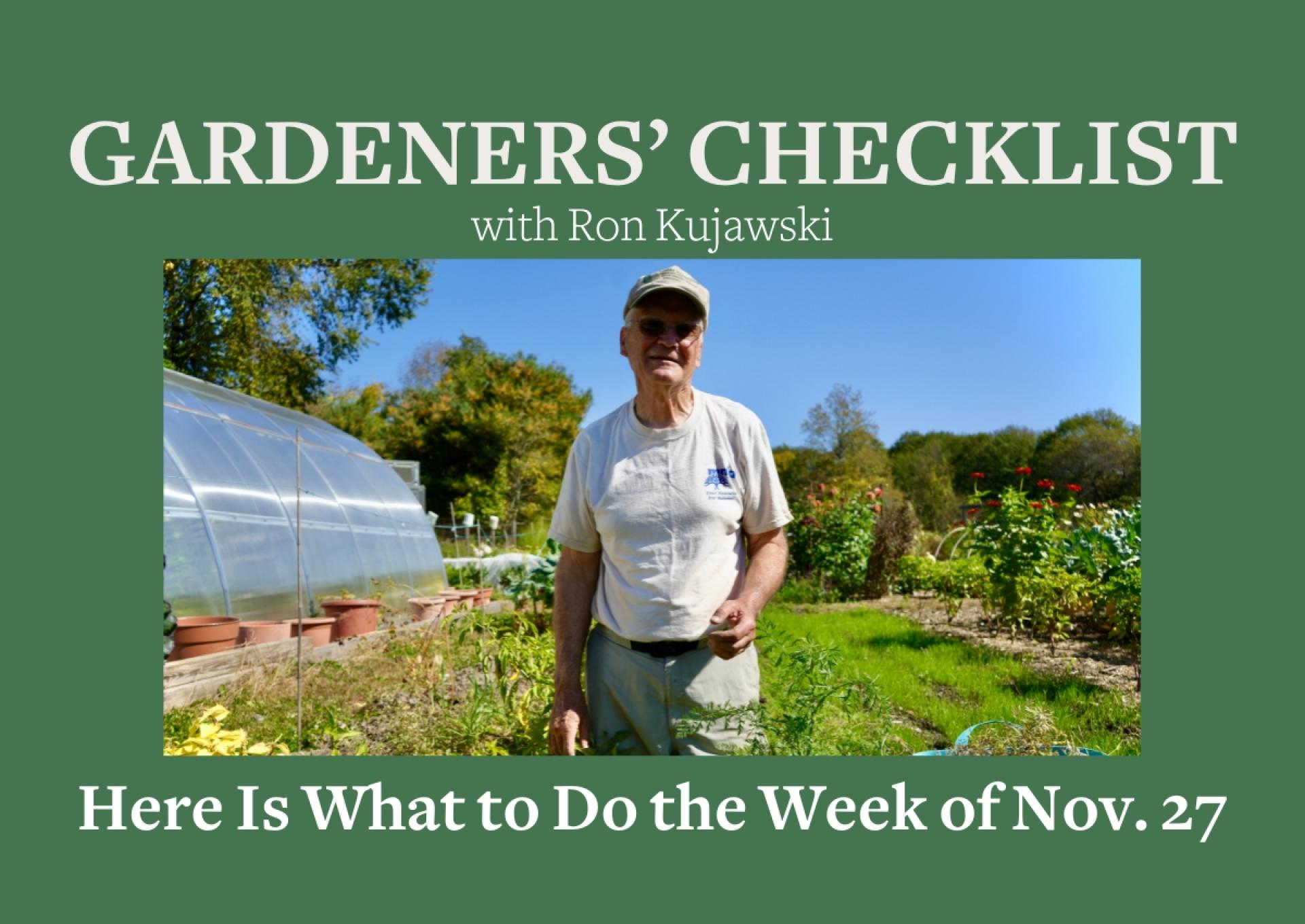You are here
Gardeners Checklist: Here's What to Do on the Week of Nov. 27
Gardeners Checklist: Here's What to Do on the Week of Nov. 27
By Ron Kujawski
• Trim back tall grass growing around the base of fruit trees. Tall grass makes a good cover for field mice that like to gnaw on the smooth, thin bark of fruit trees. Also, be prepared to stomp down fresh fallen snow around the trees. Field mice don’t like to be caught out in the open where they can become easy prey for keen-eyed hawks.
• Buy some flower pots, potting mix and spring flowering bulbs of various sorts. Make sure that the bulbs are labeled as pre-cooled or ready for forcing. Pot up the bulbs but leave the pots in a cool location until ready to hand out as gifts for Christmas.
• Apply a dilute solution of fish emulsion or a water-soluble fertilizer to potted herbs growing under lights or on the kitchen window sill. While house plants should not be fertilized during the winter months since they are not actively growing, this is not true for herbs, which need to continue growing if we are to use them in cooking.
• Extend the flowering time of Thanksgiving cactus by keeping the plant well-watered, free of drafts and in the same place — they don’t like to be moved when in flower. Any deviation from these requirements could cause flower buds to drop.
• Avoid the spring rush. Take your lawn mower in now for a tune up.
* * *
My wife and I were just reviewing the amounts of various fruits and vegetables we preserved this year by way of canning, freezing, dehydrating, or simply storing dry as in the case of onions, winter squash and potatoes. I have to admit to a feeling of contentment. After reading and hearing news reports on the average price of Thanksgiving dinner this year, I was more grateful than usual that we grow so much of the food we eat. I’m sure that the number of people who started a vegetable garden or increased the size of their garden has increased substantially in recent years, as did the sale of vegetable seeds. Much of this increase of course is related to the economy. Some of it is simply related to quality; we never worry about pesticide or bacterial contamination of the food we harvest from our garden. While we don’t grow everything we eat, there is still a sense of self-reliance; something I think is sadly missing in much of society today. Am I gloating? Perhaps a little, but I do wish that more people would get into growing some of their own food, even if it’s no more than a 10-by-10-foot vegetable plot or a few patio containers of tomatoes and fresh herbs. The New Year is still a month away but it’s not too soon to make a resolution to start or expand your vegetable garden. In fact, the planning can begin now.
Ron Kujawski began gardening at an early age on his family's onion farm in upstate New York. Although now retired, he spent most of his career teaching at the UMass Extension Service. He serves on Berkshire Botanical Garden’s Horticulture Advisory Committee. His book, Week-by-Week Vegetable Gardener’s Handbook, is available here.
Help Our Garden Grow!
Your donation helps us to educate and inspire visitors of all ages on the art and science of gardening and the preservation of our environment.
All Donations are 100 percent tax deductible.



